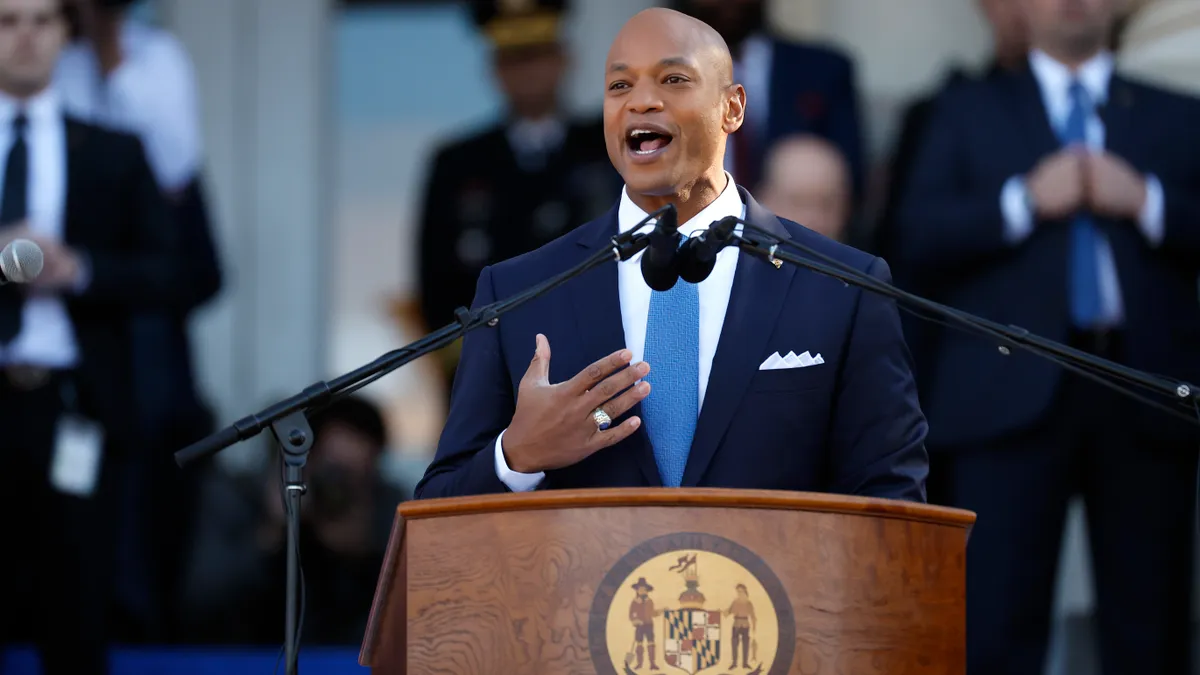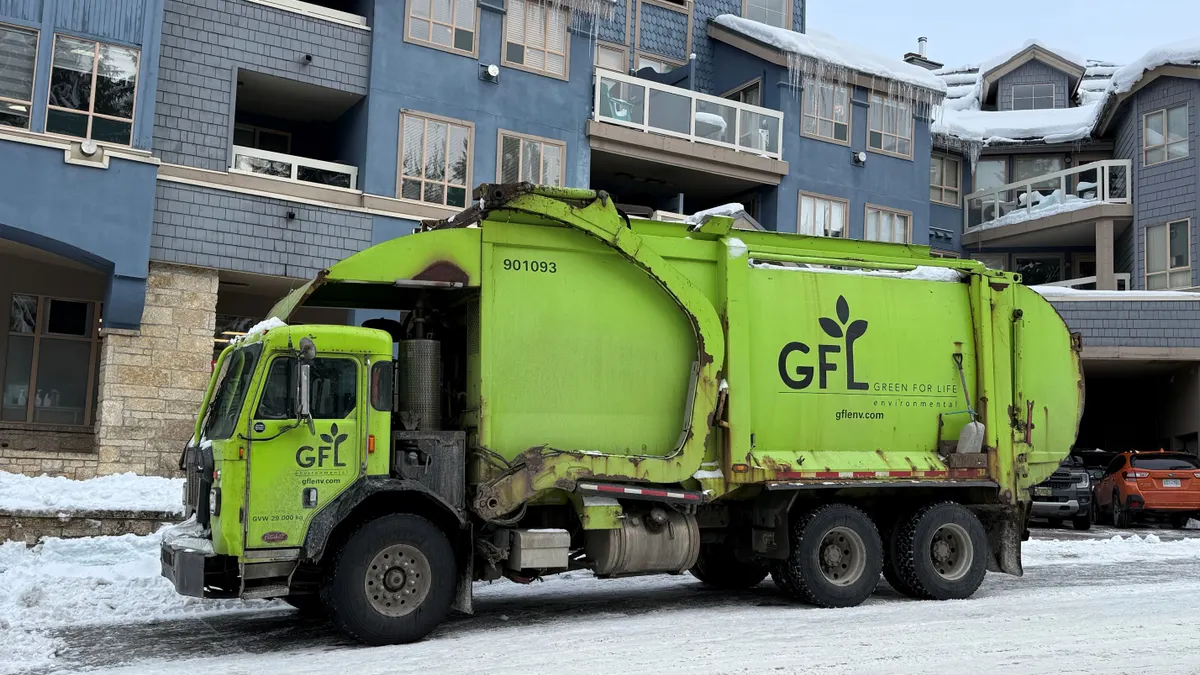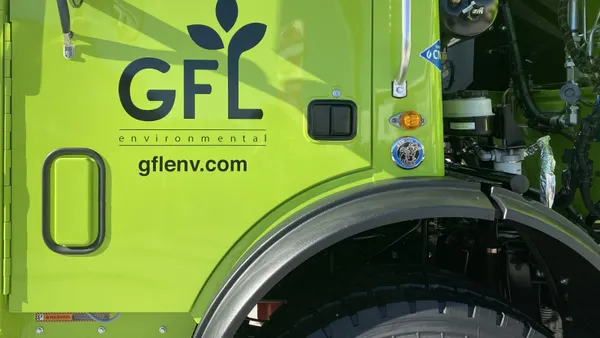Maryland has become the sixth U.S. state with a packaging EPR law after Gov. Wes Moore signed SB 901 on Tuesday.
The law covers certain packaging and paper products, including beverage containers. Program fees will help local governments cover costs associated with recycling collection, transportation and processing in Maryland. Producers found to be in violation of the law may eventually face civil penalties ranging between $5,000 and $20,000.
Maryland’s law also includes ecomodulation provisions meant to incentivize packaging that can be recycled, reused or composted. Maryland’s packaging EPR bill differs from other state programs in that it allows multiple producer responsibility organizations to operate at the program’s launch.
Moore applauded the bill as a way to reduce unnecessary packaging and “ensure we have the right systems and the right structures in place for recycled materials and make sure [packaging materials] actually get recycled,” he said during the bill signing. He also thanked citizen recycling advocates and noted support from McCormick & Co., a seasoning company that has been involved in the state’s EPR process, and the Maryland-Delaware-D.C. Beverage Association, the region’s beverage bottler and distributer trade association.
Moore also thanked lead bill sponsor state Sen. Malcolm Augustine, calling him “a true leader on this issue for a long time.” Augustine led with bill along with state Sen. Sara Love and others.
In a separate statement, Augustine said the law “will create a more efficient, circular system for managing packaging and paper—resulting in cleaner communities, less waste, and more sustainable products.”
Maryland’s road to packaging EPR was more gradual than in some states. Today’s law comes in the wake of a 2023 study bill that called for an EPR advisory group, recycling needs assessment and subsequent recommendations report. That report was released earlier this year. SB 901 was introduced before those findings were shared, but bill sponsors said subsequent bill amendments reflected some of those recommendations.
Circular Action Alliance, the industry-founded PRO active in multiple other U.S. states with packaging EPR laws, participated in Maryland’s EPR advisory board.
Implementation timeline
-
July 1, 2026Approved producer responsibility organization files a registration form with the Maryland Department of the Environment noting participating producers and their covered materials
-
July 1, 2026Producers may develop and operate an alternative collection program to collect and manage covered materials, on or after this date
-
July 1, 2027The Maryland Department of the Environment develops a statewide list of covered materials determined to be recyclable or compostable through curbside recycling programs
-
July 1, 2028Producer responsibility plan due to the department, which will review it within 120 days
-
July 1, 2028Reimbursement rate of at least 50% of cost per ton for covered services
-
Jan. 1, 2029Service providers seeking reimbursement must register with the department
-
July 1, 2029Reimbursement rate of at least 75%
-
July 1, 2030Reimbursement rate of at least 90%
-
July 30, 2034Hire an independent consultant to conduct a once-every-10-years statewide recycling needs assessment
Multiple packaging groups were pleased with Maryland’s outcome. “Ameripen is proud to have supported Maryland’s data-driven EPR legislation and hopes that other states will follow suit as they consider similar legislation in the future,” the policy organization said after the bill passed.
Key recycling groups supported the bill. The Product Stewardship Institute said it has been working with Maryland lawmakers and Trash Free Maryland since 2021 to develop the law, based on PSI’s national packaging EPR model. It also provided technical assistance and helped with stakeholder engagement, PSI noted in an email.
The Maryland Recycling Network also supported the bill, including language to preserve local control over recycling programs as well as public and private MRF owner control over facilities and operations. The Association of Plastic Recyclers and other organizations offered additional written testimony in support of the bill in March, as well as suggested various amendments.
The World Wildlife Fund applauded the bill signing on Tuesday. “This important measure to reduce discarded plastic will help protect Maryland’s natural wonders like the Chesapeake Bay while also delivering tangible benefits for businesses and consumers around the state,” said Alejandro Pérez, senior vice president, policy and government affairs, in a statement.
Yet the American Forest & Paper Association called for Gov. Moore to veto the law, saying last month in an op-ed in The Daily Record that the law would negatively impact complex paper recycling systems in the state. The group historically opposes EPR that includes paper products, but noted that it supported Maryland’s needs assessment process.
Here are some other states where EPR bills are still in play.
Washington
- The Recycling Reform Act passed the state legislature and was sent to Gov. Bob Ferguson on April 25. It’s now awaiting a final signature.
- The bill establishes EPR for most kinds of packaging and calls for establishing a statewide recycling collection list, providing curbside recycling for all homes that already have curbside trash service, and conducting a statewide recycling needs assessment. Producers would reimburse waste service providers 90% of recycling system costs, according to the bill.
- Washington already has six EPR or product stewardship programs for electronics, light bulbs that contain mercury, solar panels, pharmaceuticals, paint and batteries.
New York
- The Packaging Reduction and Recycling Infrastructure Act aims to fund state recycling efforts and ban certain chemicals in packaging, such as PFAS. This bill has been reintroduced several times in recent years and passed the Senate in 2024, when it was sponsored by state Sen. Pete Harckham. He again sponsors the bill this year, along with Assemblymember Deborah Glick.
- The bill also sets recycled content requirements and plastic reduction thresholds. The proposed recycling rates would be at least 35% by 2030 for non-plastic packaging, increasing to 75% by 2052. For plastic packaging, the rate would be 25% by 2030 and 75% by 2052.
- The Affordable Waste Reduction Act calls for New York to appoint an 18-person advisory board and conduct a statewide recycling needs assessment.
- The bill would establish a PRO that would set reduction, reuse and recycling targets, as well as goals for composting and integrating post-consumer recycled content into applicable packaging. This bill is supported by major brands.
Other pending EPR bills
- Connecticut legislators introduced an EPR study bill.
- Massachusetts’ EPR for packaging bill would set combined reduction and recycling rates.
- New Jersey’s EPR bill is moving through committee. It would require a state needs assessment and set certain source reduction and recyclability requirements.
- Bills have been introduced in Illinois and Nebraska but have not yet moved forward.
- Rhode Island introduced an EPR for packaging bill that would also set up a deposit return system for most types of beverage containers.
















